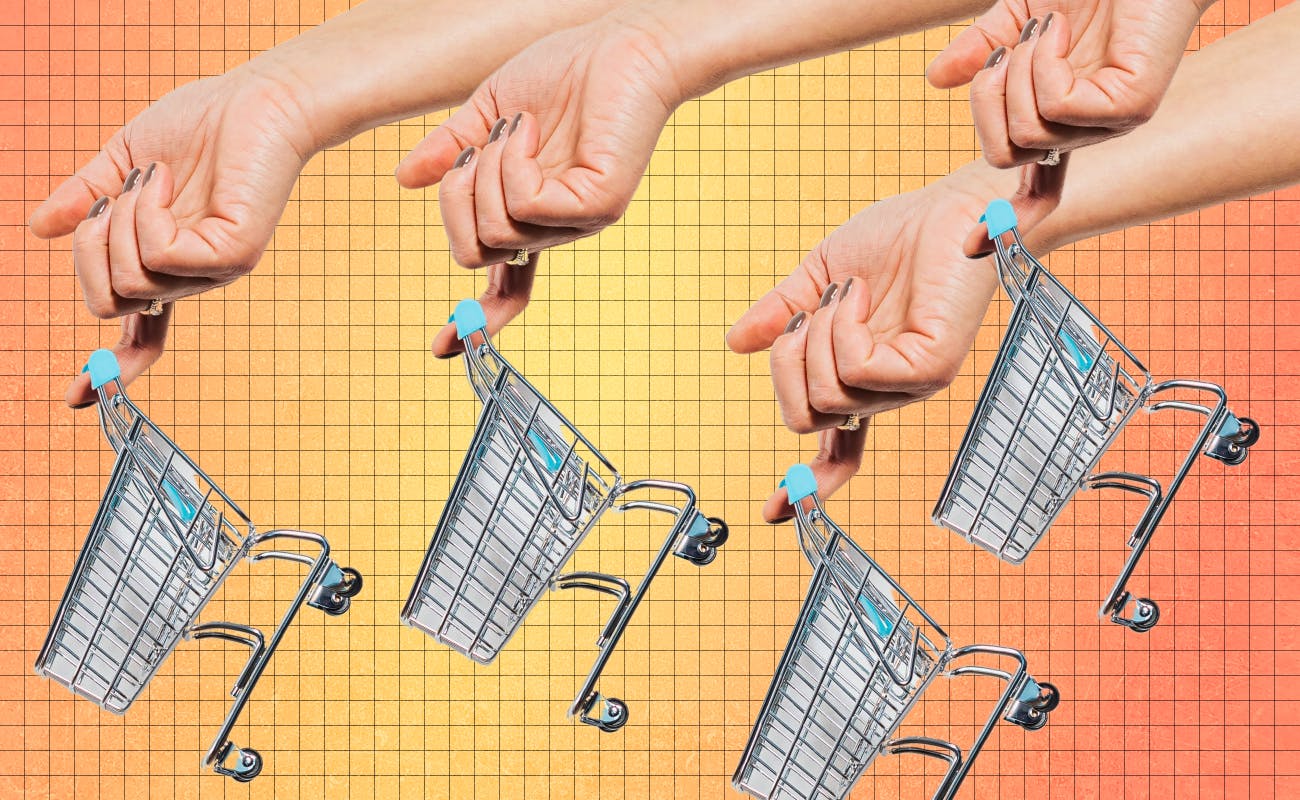
3 Lessons From a Market Downturn: What Consumer Behavior Can Teach Us About the Future of Commerce

In July, Amazon had its biggest Prime Day sale in history: Consumers purchased 300 million items, which was a 50 million jump from 2021. But instead of splurging on wish-list products, consumers cashed in on essential goods: think garbage bags, dishwasher detergent, and diapers.
With inflation at a 40-year high (just in the last year, inflation rose by 9%), people are changing their spending habits. Gas and groceries are cutting deeper holes in American’s wallets, and it’s happening at a rapid pace.
What will the ripple effect of changed consumer behavior be for commerce? There's no doubt start-ups in emerging sectors will have to adapt their strategies to continue to grow during a time of slowed spending. But it’s not all doom and gloom: innovation may be forced upon founders during this time, but that innovation can lay the groundwork that will remove pressure from buyers and enable more businesses to grow. Even during a market downturn, it's a good time to be a founder, especially in areas like fintech, logistics and the circular economy.
Buy Now Pay Later Embraces a Shift
In light of price hikes, the option to pay for products in installments is appealing for customers. In fact, buy now pay later (BPNL) use increased 20% year over year since last December.
Consumers dipped into their personal savings for BNPL, which boomed during the Covid-19 pandemic thanks to government stimulus checks. But at the same time as Americans are burning through their savings, their revolving credit has grown by nearly one-fifth in just the first few months of 2022. That combination creates a perfect storm for BNPL companies: While there’s demand for the service they provide, these companies are using more of their quarterly revenues to service debt that consumers have yet to pay down.
Where BNPL does have an opportunity to evolve is by helping people pay for products without saddling them with debt. This doesn’t just help customers, but also protects companies from paying off debt when customers don't. Kasheesh, a two-year-old startup that emerged from stealth mode this summer, takes the same BNPL playbook but flips the script. Customers make purchases through a web browser extension that allows them to pool their own money, across their existing debit and credit accounts—basically, they can “split the check.” With Kasheesh, consumers don’t have to sign up for an interest-bearing loan as they’re paying off whatever it is they’re buying. Kasheeh, in turn, avoids having to service debt payments (the startup makes money from interchange fees from MasterCard, which pulls from customers' funding sources).
Upleveling Commerce Logistics with Software
Instead of paying in installments, some consumers are choosing to not buy at all. Big-ticket items are the first things many consumers cross off the list when they’re prioritizing their budgets during a market downturn, and this time around is no different. Whirlpool and Weber are all noting that demand is down for key products like clothing dryers and grills.
It might come as a surprise, but this lack of buying stands to make companies’ supply chain woes an even bigger nightmare. Already struggling to restock items against the backdrop of a multi-year pandemic and higher gas prices, major retail stores are now realizing they’ve overstocked on inventory that consumers can no longer afford. Target, Best Buy, Walmart—all are sitting on a glut of goods, ordered months ago, they were sure would sell off.
“Companies chased as much merchandise as possible to support demand, which has now slowed,” said Dana Telsey, a retail expert and CEO and chief research officer at Telsey Advisory Group, in a note to clients sent in May.
I’ve written previously that adding data visibility to the commerce supply chain can help businesses get ahead of change in demand and avoid massive amounts (we’re talking 13 million tons in some cases) of wasted product. Today’s economic conditions and its influence on consumer spending, tell us the time to implement these tools is now.
Subscription Services and the Circular Economy See Rise in Innovation
Despite the fact that consumers are prioritizing essential purchases during this time, there are some areas of spending where people refuse to cut corners or do without entirely.
For example, pets are still getting the food they prefer. Subscription box companies like Chewy and BarkBox are widely seen as “recession-proof,” as they increased subscriptions during the pandemic and are maintaining their growth through the downturn. Meals and travel are another two buckets of spending where people are still pouring money. And economists at Wells Fargo say people are willing to pay for experiences, especially international travel after years of border lockdowns, which could make this year heading into next an even bigger opportunity for travel apps like Scott’s Cheap Flights, which sends users curated lists of discounted airfare to and from preferred destinations.
Finally, look for the sharing economy to have a bit of a resurgence. Airbnb rentals continue to do well: The company’s revenues year over year have grown more than 90% coming out of the pandemic. Other, smaller startups in the space are having a moment, too. Want to take a dip but don’t have a pool? Swimply lets you rent out someone else’s backyard oasis for hours at a time.
If consumer behavior continues on its current trajectory, expect more companies that help customers prioritize experiences without breaking the bank (or preventing them from paying their bills) to crop up. Ultimately, the businesses poised to come out on the other side of these tough economic times will be the ones who deliver on customers’ immediate needs—and help them save cash in the process.